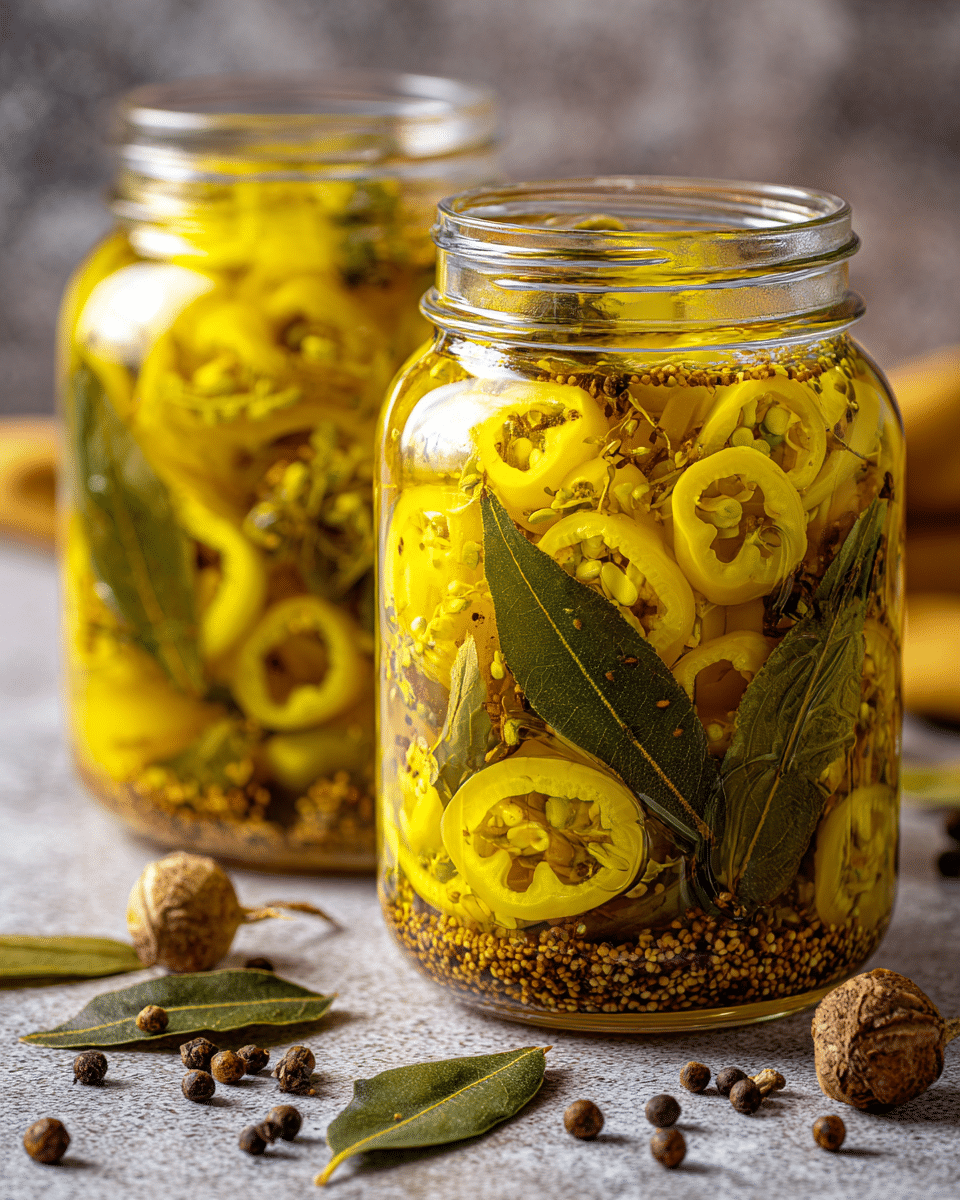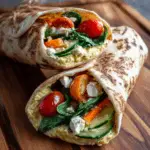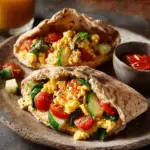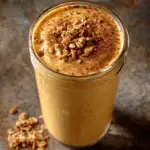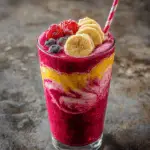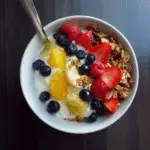Pickled banana peppers are a tangy, crunchy, and vibrant addition to any meal. Whether you top them on sandwiches, toss them into salads, or enjoy them straight from the jar, their mild heat and vinegar punch elevate any dish. Making them at home is easy, cost-effective, and allows you to control the flavor. This quick-pickle recipe requires minimal effort and delivers maximum flavor, perfect for those who love a zesty snack or a bold garnish.
FULL RECIPE
Ingredients
- 10–12 fresh banana peppers, sliced into rings
- 2 cups white vinegar
- 1 cup water
- 2 tablespoons sugar
- 1 tablespoon salt (pickling or kosher)
- 2 cloves garlic, peeled and smashed
- 1 teaspoon mustard seeds
- ½ teaspoon whole black peppercorns
- ¼ teaspoon crushed red pepper flakes (optional for heat)
- 1 bay leaf
- Glass jar(s), sterilized
Directions
- Wash the banana peppers thoroughly, remove stems, and slice them into rings of desired thickness.
- Pack the sliced peppers tightly into sterilized glass jar(s).
- In a saucepan over medium heat, combine vinegar, water, sugar, and salt. Stir until sugar and salt dissolve completely.
- Add garlic, mustard seeds, black peppercorns, red pepper flakes (if using), and the bay leaf. Simmer for 2–3 minutes to infuse flavors.
- Carefully pour the hot brine over the banana peppers in the jar, covering them fully. Tap the jar gently to release air bubbles.
- Let the jar cool at room temperature before sealing with a lid.
- Refrigerate for at least 24 hours before using for best flavor; they’ll last for up to 2–3 months in the fridge.
Nutrition Facts
- Calories: 20
- Total Fat: 0g
- Saturated Fat: 0g
- Trans Fat: 0g
- Cholesterol: 0mg
- Sodium: 180mg
- Total Carbohydrates: 4g
- Dietary Fiber: 1g
- Total Sugars: 2g
- Added Sugars: 1g
- Protein: 0g
- Vitamin A: 4% DV
- Vitamin C: 45% DV
- Calcium: 1% DV
- Iron: 2% DV
The Appeal of Pickled Banana Peppers
Pickled banana peppers are a standout condiment for those who love a touch of zest in their meals. Their tangy, slightly sweet profile with a hint of heat makes them highly versatile in culinary applications. These peppers are mild compared to other chili varieties, making them ideal for individuals who enjoy flavor without overwhelming spice. The pickling process elevates their texture and flavor, giving them a satisfying crunch and depth that fresh peppers don’t always deliver. Whether used as a garnish or a central flavor component, their appeal lies in their ability to transform ordinary dishes into something exciting and flavorful.
Health Benefits of Banana Peppers
Banana peppers are not only tasty but also bring a range of health benefits. They are rich in vitamin C, which supports immune health and skin vitality. They also contain vitamin A, essential for eye health, and small amounts of folate and fiber, which contribute to heart health and digestive well-being. The capsaicin in banana peppers, though minimal, can help boost metabolism and promote fat oxidation. As part of a balanced diet, incorporating pickled banana peppers can offer a flavorful way to enjoy health benefits without unnecessary calories or fat.
Homemade vs. Store-Bought
Making pickled banana peppers at home offers several advantages over buying store-bought jars. Homemade versions allow you to control the ingredients—such as the type of vinegar, level of sweetness, salt content, and heat intensity—ensuring a healthier and more customized product. Store-bought varieties often contain preservatives and added sugars that may not align with everyone’s dietary goals. By pickling your own, you ensure freshness, transparency in ingredients, and the satisfaction of creating a superior-quality condiment tailored to your taste preferences.
Culinary Versatility of Pickled Banana Peppers
One of the reasons pickled banana peppers are so popular is their exceptional versatility. They can be used in salads, sandwiches, burgers, tacos, pizzas, nachos, wraps, and antipasto platters. They also pair well with cheeses, deli meats, and roasted vegetables, enhancing both flavor and visual appeal. For home cooks and chefs alike, these peppers are a reliable go-to ingredient that brings brightness and balance to rich or savory dishes. Their acidic profile makes them a natural palate cleanser, often adding the perfect finishing touch.
Preservation and Shelf Life
When properly stored in sterilized jars and kept refrigerated, pickled banana peppers can last up to 2–3 months or even longer without compromising taste or texture. The acidity of the vinegar acts as a natural preservative, while the brine prevents spoilage and maintains crispness. For long-term storage, these peppers can also be processed using proper canning techniques. This makes them a convenient and low-waste option for preserving seasonal produce and enjoying their flavor well beyond the harvest months.
Customizing Flavor Profiles
One of the joys of making pickled banana peppers at home is the ability to experiment with flavors. You can infuse your brine with garlic, mustard seeds, black peppercorns, bay leaves, red pepper flakes, dill, or even a touch of honey for sweetness. Adjusting these components allows you to craft a unique pickling experience—whether you’re aiming for something classic and simple or bold and adventurous. This level of control makes it easy to tailor the peppers to suit different cuisines or dishes.
Pairing with Other Ingredients
Pickled banana peppers enhance a wide range of ingredients by adding brightness and acidity. They pair wonderfully with grilled meats, cured sausages, cheeses, and creamy spreads. When added to fatty or fried foods, their sharpness cuts through the richness, creating a more balanced mouthfeel. They also shine in vegetarian and vegan dishes, adding flavor without extra fat. For example, they can lift a simple hummus wrap or give a pop to a quinoa salad, proving their worth in countless recipes.
A Staple in Global Cuisines
While often associated with American and Mediterranean cuisine, pickled banana peppers have global culinary relevance. In the Balkans, pickled peppers are commonly served with grilled meats and cheeses. In Latin America, similar pickled chilies are used to top tacos and tortas. In the Middle East, tangy pickles are part of nearly every meal. This cross-cultural use of pickled vegetables speaks to the universal love of acidity and spice in cooking. Pickled banana peppers fit into a broader food tradition that values balance, preservation, and bold flavors.
Diet-Friendly and Low-Calorie
For those monitoring their caloric intake or following specific diets, pickled banana peppers are an ideal snack or topping. They are naturally low in calories and fat, yet they provide flavor intensity that can replace high-calorie sauces and dressings. Their briny and spicy notes can satisfy cravings without derailing diet goals. Suitable for vegan, keto, paleo, and gluten-free diets, they cater to a wide audience looking for healthy, vibrant food options.
Economic and Sustainable Cooking
Homemade pickling promotes economical and sustainable cooking. Banana peppers are often available at low prices, especially in season or at farmers markets. Pickling extends their shelf life and helps reduce food waste. Moreover, using glass jars instead of single-use packaging aligns with environmentally conscious practices. Making your own pickles not only saves money over time but also reduces your ecological footprint, contributing to a more sustainable kitchen lifestyle.
Fun and Easy for Beginners
Pickling banana peppers is a fun kitchen project that doesn’t require any special equipment or prior experience. Unlike traditional canning, quick-pickling is simple, fast, and approachable for beginners. The process offers a sense of accomplishment and encourages culinary exploration. It can also be a great family or group activity, introducing kids or newcomers to the world of food preservation. The rewarding result—a colorful jar of zesty, homemade peppers—makes the experience all the more enjoyable.
Conclusion
Pickled banana peppers are more than just a condiment—they’re a celebration of flavor, versatility, and tradition. Their balance of sweetness, tang, and mild heat makes them a favorite in kitchens worldwide. Whether you’re looking to enhance your meals, eat healthier, or experiment with preserving produce, these pickles offer the perfect starting point. Homemade, customizable, and packed with nutrition, they’re a must-try recipe for food lovers of all levels. Keep a jar in your fridge and discover just how many dishes they can transform.

